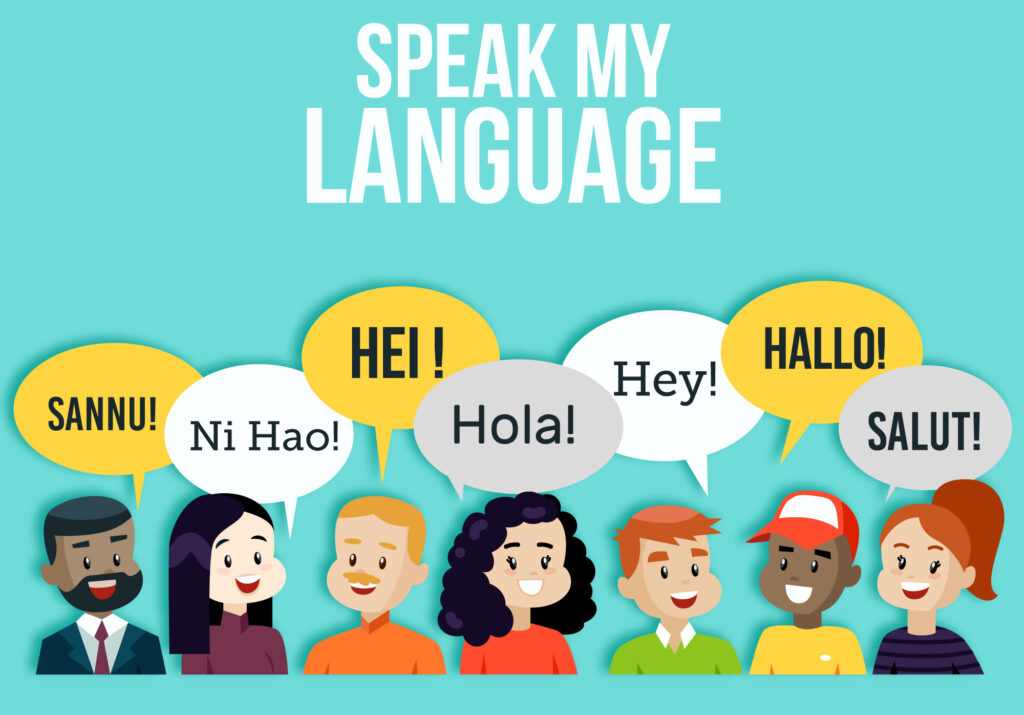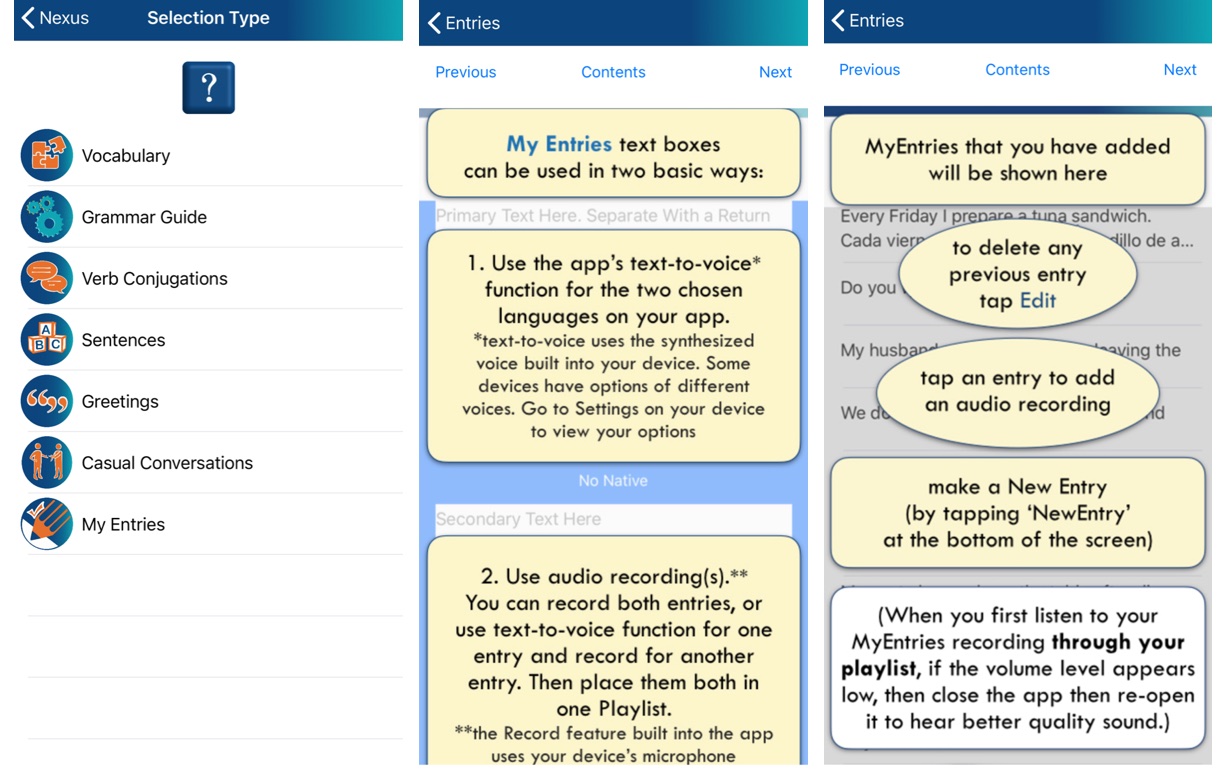How To Get The Most Out Of Language Practice With Native Speakers
One of the best ways to learn to master a foreign language is to be immersed in it and speak it. However, in an increasingly connected world where English is considered a “Lingua Franca” due to the nature of international commerce; attempts to practice language with native speakers can be more difficult than expected. In Europe especially, many young people and professionals are at least bilingual, and many of them have at least some command of the English language. In fact, many of them are just as eager to practice English as you are to practice their language. This can, of course, lead to situations where well meaning locals might catch you struggling with their language and try to communicate with you in English instead.

In this article, we are going to look at a few techniques for getting the most out of your foreign language practice while abroad. From letting the locals down easy, to some more creative methods of keeping the conversation going in the language you are learning so you can practice and enjoy the benefits of immersion.
Strategies For Overcoming Eager Native Speakers
Immersion is a key technique for learning a language. When you are surrounded by the language, it becomes easier to remember and use the words and phrases you study. Traveling provides many people the perfect opportunity to get out there and really immerse themselves in a language. Sometimes though, an eager local will notice you struggling with their language and jump at the chance to tell you they speak English. This helpful gesture can unfortunately derail you from your educational goals by breaking the immersion. Oftentimes native speakers do this to be helpful, and other times it is also so they can practice their English.
A few strategies for helping you to overcome this challenge are:
- Practice conversational sentences to hide your weaknesses.
- Pretend English is not your first language.
- Flatter their language and inform them you are trying to learn.
- Offer to trade some practice time.
Let’s take a closer look at these techniques for how to practice language with locals, how to use them, and when to use them.
Practice Conversational Phrases
One way to avoid the potential problem of having a local try to speak English with you, is to not give them an opening. One way to do this, is to practice some of the more often used conversational phrases and learn to speak them quickly and confidently. Even if you find yourself struggling, having a grasp of a few of these phrases or pieces of conversation can keep you from sounding like you are.

The key to this is practice. Collect a series of phrases that you will be likely to use based on your plans, and practice using them in conversations. Memorize them and get used to speaking them with confidence. Using an app like Encore!!! can be great for this because it lets you record those phrases and practice them over and over. You can also record the likely responses you will hear, and practice using your phrases in response. Keeping the conversation flowing will keep you having the opportunity to practice languages with native speakers during these day to day interactions.
Pretend English Is Not Your First Language
Many of the people you encounter who speak a second or third language will speak at least some level of English. This means that when they see you struggling with their language, if they assume you speak English as your first language, they will default to trying to help you by speaking it to you. Some will also be looking at this as an opportunity to practice their English as well. However; if they don’t think English is your native language they will find themselves unable to try to switch the language of the conversation.
This may seem deceitful, but it is one way to ensure that you get the most out of street interactions. How would you go about this? Well, one simple way would be to look confused at their attempts to speak English. You can also memorize the saying “I don’t speak English, please help me in (local language here)” in the language of the place you are visiting. You can take this last one a step further, by remembering a simple apologetic phrase in another language as well, to help get the point across that English is not going to help this conversation move forward and they will have better luck in their mother tongue.
Flattery Will Get You Everywhere
People tend to have pride in their language and culture, and many are thrilled to find out that others are trying to learn more about it. Sometimes, the best approach when it comes to language learning with native speakers is the honest approach. You should let the person you are conversing with know your intentions and why you do not want to continue the conversation in English. And one of the most effective ways to do that is to flatter their language and stoke their pride.
Using the Encore!!! app, you can memorize a phrase such as: “I am trying to learn to speak your beautiful language, please be patient with me!” This will not only signal to the person you are speaking to that you want to learn, but also that you respect and find beauty in their culture and language. You can find a few phrases like this by using a translator, Google Translate, or from a friend who speaks the language and then load those phrases into Encore!!! so you can practice till you commit them to memory.

Offer To Trade Some Practice Time
Now, this is not the technique you are likely to use with someone who you do not have a lot of interactions with. Yet, if you have some people during your journey whom you will be interacting with often, it might not be a bad idea to give them the opportunity to practice English with you in return for letting you practice with them. Let them know that you want to continue the current conversation in their language, possibly with a phrase like the one mentioned in the previous point, but that you don’t mind giving them a chance to practice English later.
If the person is more fluent in English they might not see the benefit in this, yet they still might appreciate the gesture. However; if you come across someone just as eager to learn English as you are their language, this is an excellent chance for you to both benefit from the opportunity presented to you. You can even make this lesson last longer with your language practice partner by using the Encore!!! app to record some phrases and lessons for each other to study. You may just gain a friend in the process along with the lifetime of learning that comes with having one.
Conclusion
When presented with a challenge to your immersive language learning experiences while travelling it doesn’t have to derail your efforts. Having a plan for dealing with these situations in advance will ensure that you can overcome eager attempts to communicate in English and keep on the path of gaining fluency. Some plans will work in some situations, and others will not, so it is always good to have a few scenarios ready to put into action.
Encore!!! is a vital tool for learning and teaching foreign languages that is useful in all of these scenarios. Encore!!! lets you create your own learning plans, add new phrases to focus on and learn, and share your lessons with others. You can use it to practice conversational phrases, learn to say you don’t speak English, learn to let people know you love their language and want to speak it, and even record some phases for a new friend to learn. All of this is at your fingertips with Encore!!!
How to Use Contents in this folder
